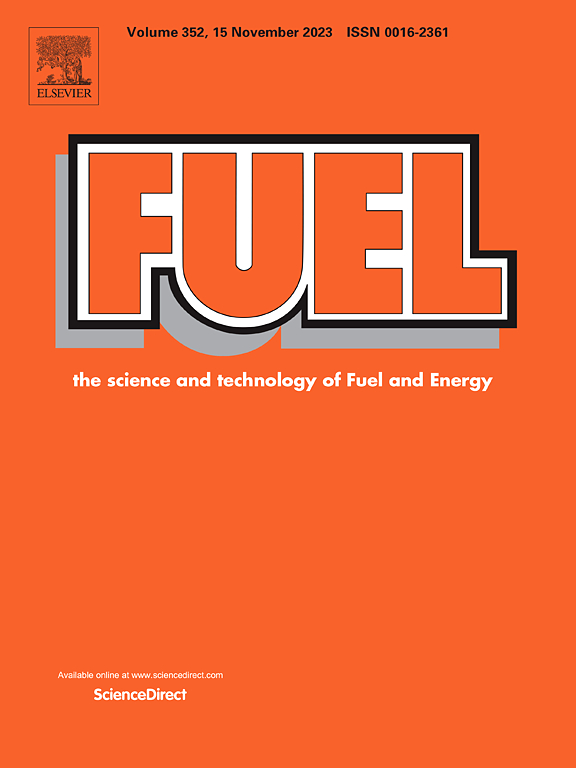Inhibitory effects of three fungi on active microstructure in the oxidation process of lignite coal
IF 6.7
1区 工程技术
Q2 ENERGY & FUELS
引用次数: 0
Abstract
To investigate the effect of microorganisms derived from coal on the natural oxidation process of coal. Three fungi strain were isolated from the Shengli lignite in Inner Mongolia, China. After two rounds of domestication, these strains were separately reacted to coal. Results indicate that microorganisms have a reduction in S content was observed. The influence of the Penicillium chrysogenum strain on the contents of N, O, Al and S was particularly notable. The experimental microorganisms contributed to a decrement in the peak area of OH–O and the content of oxygenated functional groups. Specifically, the Aspergillusustus strain eliminated the vibration peak of C=O in coal. The impact of microorganisms on methylene and methyl was crucial, but it did not alter the dominance of methylene in fatty hydrocarbons. The characteristic temperatures and endothermic heat of the coal increased. The Bjerkandera adusta strain resulted in a reduction of 25.17 J/mg in the early-stage endothermic heat and 42.62 J/mg in the slow exothermic stage heat release. Microorganisms can increase the activation energy of coal and delay the development of coal spontaneous combustion (CSC). The findings offer a theoretical basis for exploring the impact of microorganisms on CSC.
求助全文
约1分钟内获得全文
求助全文
来源期刊

Fuel
工程技术-工程:化工
CiteScore
12.80
自引率
20.30%
发文量
3506
审稿时长
64 days
期刊介绍:
The exploration of energy sources remains a critical matter of study. For the past nine decades, fuel has consistently held the forefront in primary research efforts within the field of energy science. This area of investigation encompasses a wide range of subjects, with a particular emphasis on emerging concerns like environmental factors and pollution.
 求助内容:
求助内容: 应助结果提醒方式:
应助结果提醒方式:


